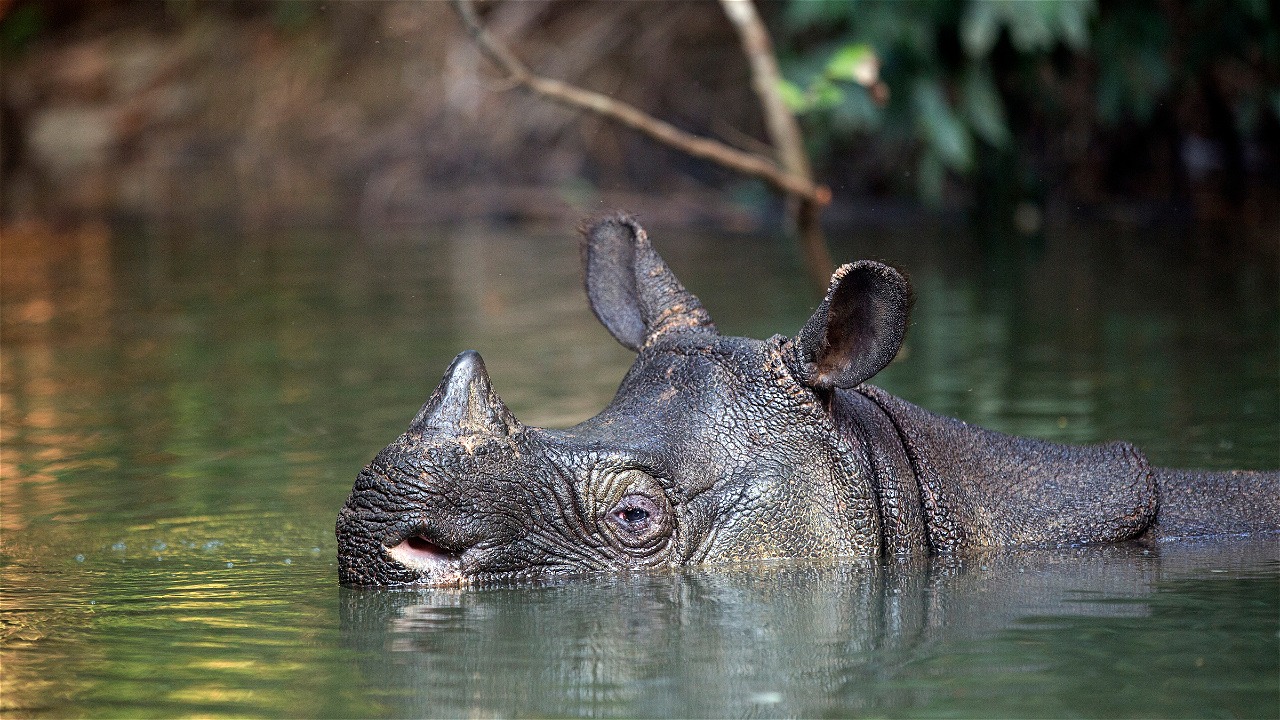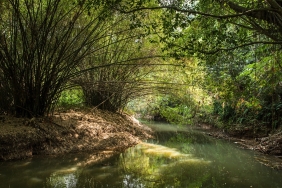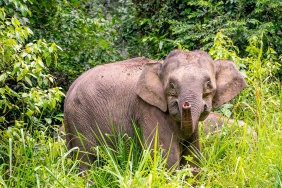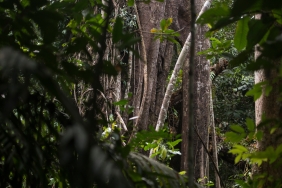SUSTAINABLE FOOD ESTATE: AN EFFORT TO REDUCE PRESSURE ON THE TNUK AREA AS A HABITAT FOR JAVAN RHINOS
By: Kurnia Oktavia Khairani (Project Leader Ujung Kulon) & Natalia Trita Agnika
That afternoon, dozens of women were enthusiastically attending a meeting at a majelis taklim in Kampung Cilubang, Cibadak Village, Ciamanggu District, Pandeglang Regency. They were participating in the "Sustainable Food Home Area" (KRPL) activity. KRPL is an activity to optimize/utilize home yards by planting various vegetables/seasonal crops to meet the needs at the household level.
The women's group, in addition to being involved in the activities of the KRPL group, they are also involved in the activities of the Ecological Agriculture Field School (SLPE), which is a learning activity for rice plants, the community's staple crop to fulfill the main food needs. However, conventional farming methods (use of chemicals and pesticides) result in unbalanced ecosystems and unhealthy rice products. Through SLPE, the women learn together how to manage sustainable rice fields by paying attention to the elements of the rice field ecosystem and the forest in the Ujung Kulon National Park (TNUK) buffer zone.
This group was formed in November 2017 under the name KRPL Cilubang Group which is chaired by Mrs. Kujum. The initial formation of this group was based on the initiative of Oyok, the Head of Cibadak Village who asked the Community Development team of WWF-Indonesia Ujung Kulon Program to carry out activities in his village in accordance with the potential and needs of the local community. Organizationally, this group is still learning how to organize because it has just been formed and has not been like a women's farmer group in general that is institutionally recognized in its full position. To strengthen institutionally, the women who are members of this group hold regular meetings every week to discuss the development of vegetables in the yard and improve their technical skills in vegetable cultivation. They make vegetable seedling houses in each sub-group and make bio-fertilizers, vegetable pesticides, and others
Through environmentally friendly agricultural management and optimization of yard lands around their village, benefits will be obtained in two aspects, namely economic and ecological aspects. Ecologically, their agricultural practices always take into account the balance of the ecosystem and efforts to build a mutually beneficial diversity/ecosystem. This condition will indirectly have an impact on efforts to reduce pressure on the TNUK area as a habitat for Javan Rhinos. Economically, with this activity, it is expected that daily food needs (vegetables and seasonings) can be met. By fulfilling the needs of daily staples (vegetables and seasonings) this will automatically reduce expenses, and the products produced are healthy food ingredients (without pesticides and chemicals).
Currently, the members of the Cilubang KRPL Group are 75 people, spread across five sub-groups. They all come from one village, Cilubang. The average subgroup member is 15 women whose daily lives are housewives, rice farmers, and planters in the fields.
Several challenges are faced by this group, including some group members who are not accustomed to environmentally friendly farming patterns. In addition, livestock that are not confined sometimes damage the plants in the yard. However, joint solutions, both in terms of strengthening the group organization and efforts to improve skills and technical knowledge are still being carried out.
The existence of this women's group is very important for the dissemination of knowledge, skills, and understanding of ecological awareness to other community groups, such as the benefits of the existence of forest areas as a water supply and the benefits of nets/food chains for pest control in rice fields/crops. Thus, the role of this group is very important in strengthening and keeping the TNUK area sustainable because some of them have realized the benefits of the existence of the TNUK area.





